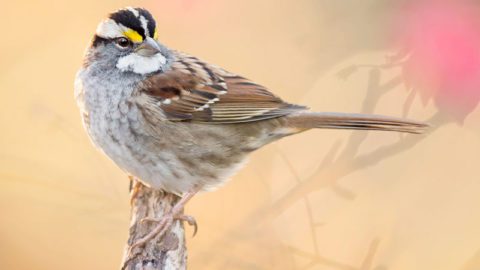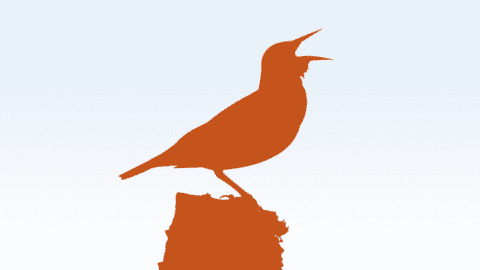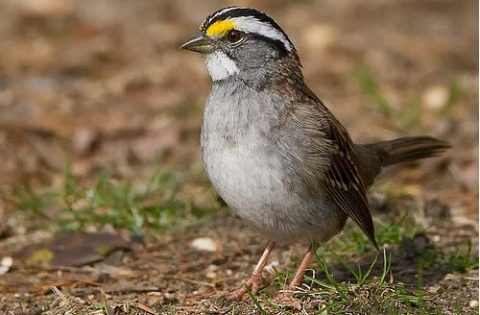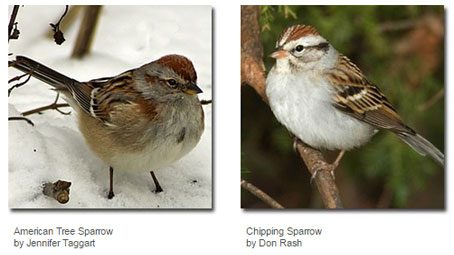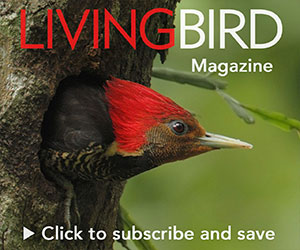The White-throated Sparrow Song That’s Taking Over North America
By Kathi Borgmann and Marc Devokaitis
September 18, 2020From the Autumn 2020 issue of Living Bird magazine. Subscribe now.
Move over, Old Sam Peabody—some White-throated Sparrows are singing a new tune.
During the breeding season, the White-throated Sparrow’s voice echoes across Canada and the northern U.S. Many birders know their song by the mnemonic Old Sam Pea-bo-dy, Peabo-dy, Pea-body or Oh Sweet Ca-na-da, Ca-na-da, Ca-na-da—two whistles, followed by a repeated three-syllable phrase.
Research published in the journal Current Biology in August reveals a surprising trend: a new White-throated Sparrow song—ending with a series of two-syllable phrases—originated in western Canada and spread across North America in the early 21st century. The new ending sounds more like Oh Sweet Cana-Cana-Cana.
Two of the study’s authors—Ken Otter, a biologist who studies animal behavior at the University of Northern British Columbia, and Scott Ramsay, a behavioral ecologist at Wilfrid Laurier University in Ontario—first heard the shortened song in 1999 in western Canada. After that, they launched a project to record White-throated Sparrow songs across North America. To their surprise, they discovered that sparrows from west to east were singing the new tune.
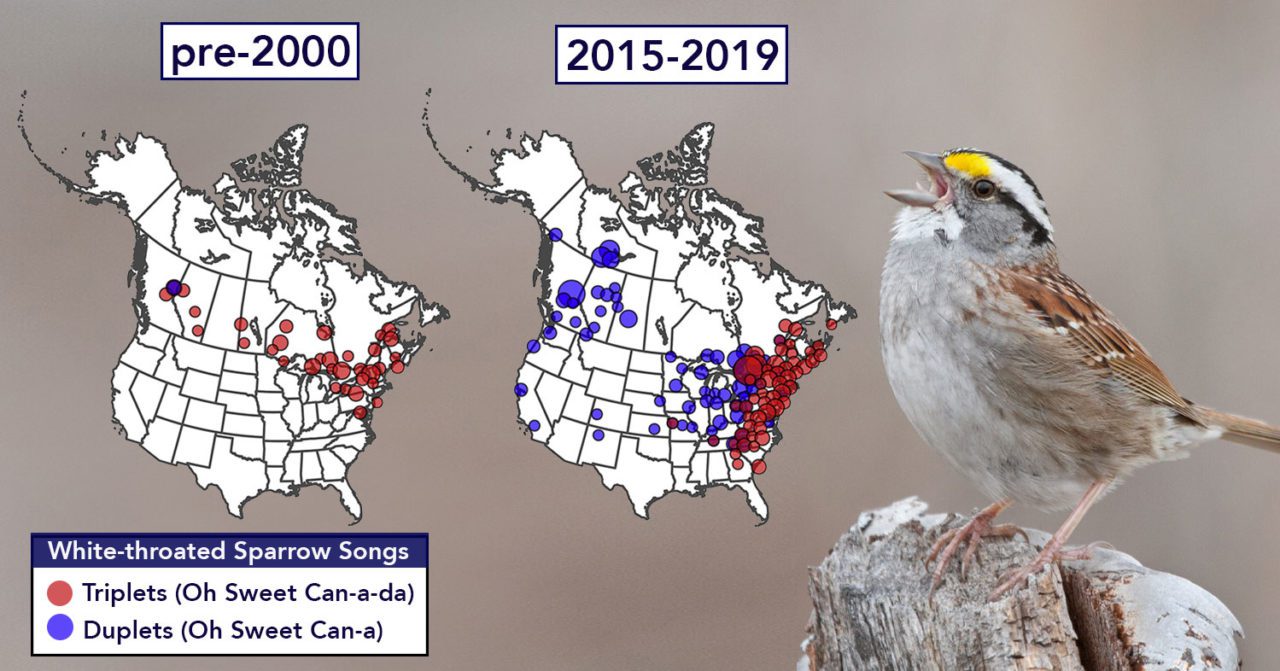

To figure out when and where the new song started popping up, Otter and Ramsey gathered historic White-throated Sparrow recordings dating back to the 1950s, including more than 300 from the Cornell Lab of Ornithology’s Macaulay Library. Using the historic and newly gathered recordings, they determined that the change in song occurred over just two decades. In 2000 the two-syllable ending was found only in western Canada, but by 2019 birds as far east as Algonquin Provincial Park in Ontario were all singing the two-syllable ending. Now it appears that the three-syllable song learned by generations of birders is only heard in far eastern populations of White-throated Sparrows.
How did birds in Ontario, which breed thousands of miles from British Columbia, acquire this new song so quickly? The team suspected that they might be picking it up on their wintering grounds. As part of their research, they geotagged 50 White-throated Sparrows from breeding areas in western Canada. These birds overwintered in states like Texas, Oklahoma, and Missouri, which are also wintering grounds for some eastern-breeding White-throated Sparrows. Mike Webster, professor of evolutionary biology at Cornell University and the director of the Macaulay Library, says this study shows a fantastic example of cultural evolution—the ability for animals to acquire behaviors from other members of their species through teaching, imitation, or other forms of social transmission.
“Cultural transmission helped this variant spread rapidly throughout the range of a wild bird, similar to how a slang term can quickly spread through human populations,” says Webster. In other words, some birds may be like trendsetting teenagers in Brooklyn or the San Fernando Valley who coin a new phrase, and pretty soon all the cool kids are saying it.
“The study is also remarkable in showing that birds from different song types overwinter near each other,” Webster says. “Song learning on the wintering grounds may be responsible for this spread.”


All About Birds is a free resource
Available for everyone,
funded by donors like you


